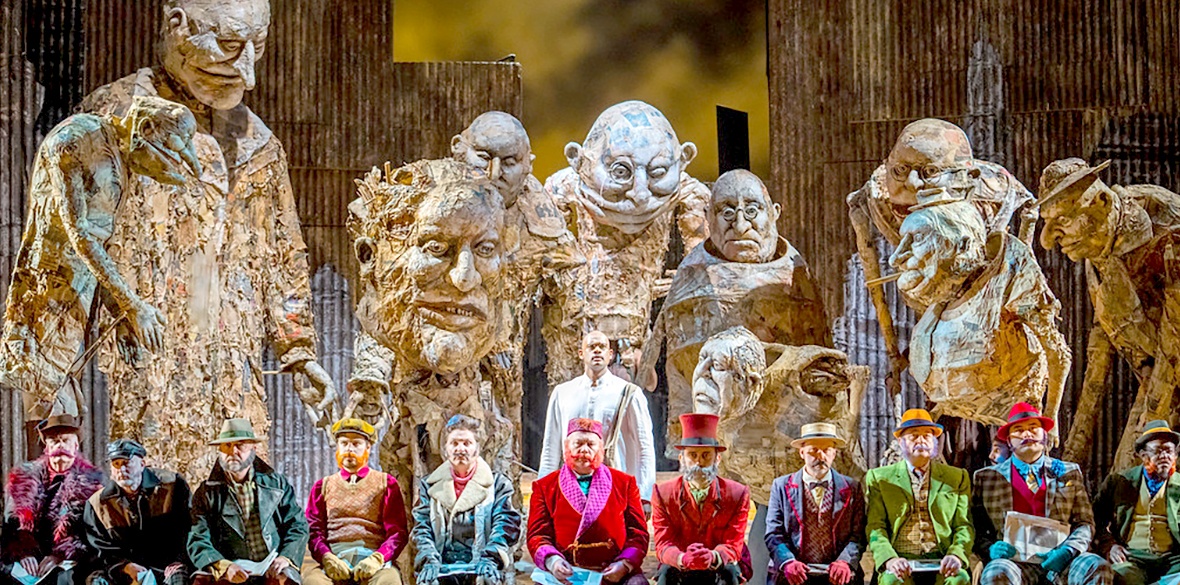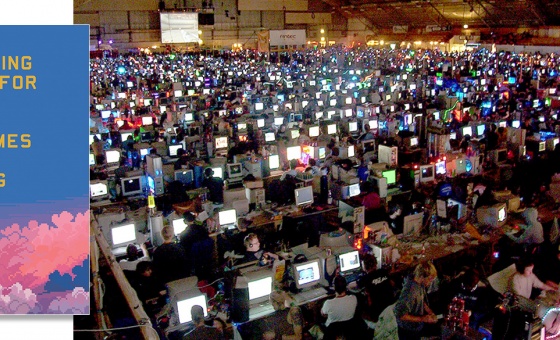This is the last article you can read this month
You can read more article this month
You can read more articles this month
Sorry your limit is up for this month
Reset on:
Please help support the Morning Star by subscribing here
Satyagraha
ENO London Coliseum
THE English National Opera opens its season with a revival of Philip Glass’s Satyagraha. A wise choice from ENO’s artistic director Anillese Miskimmon.
The opera is essentially a meditation on a theme, that of Gandhi’s time in South Africa and chiefly, the concept of Satyagraha; a Sanskrit term that loosely translates as “life force,” the idea that love, as opposed to violence, is the best way of combatting oppression.
Glass has described his the opera as more about how Gandhi is perceived in popular culture, as opposed to a biopic. Satyagraha invites the audience to reflect on the themes it represents, all centring around the philosophical and religious notion of Satyagraha.
Each act of Satyagraha “invokes a spirit guardian who represents the past, present and future of Satyagraha,” the Russian novelist Leo Tolstoy, Indian poet and activist Rabindranath Tagore and finally US civil rights leader Martin Luther King Jr.
Revival director Peter Relton brilliantly revives Phelim McDermott’s production. The show is a spectacle and takes advantage of what live theatre does best. At every moment what’s happening on stage feels like it is there for a reason and the inventive imagery matches and compliments Phillip Glass’s minimalist, hypnotic and deeply moving score.
Throughout the evening, different inspirational and thought-provoking quotes from several sources including the Bible and the Bhagavad Gita (part of Mahabharata, 1,000 BC – one of the holy scriptures for Hinduism) are projected onto the back of the set, inviting the audience to moments of reflection. The piece is entirely in Sanskrit, the music and the symbolism washes over the spectator.
The most defining aspect of McDermott’s interpretation is the use of object theatre and puppetry. The different objects cleverly represent different aspects of Indian culture, and the theme of Satyagraha.
Chorus members and performers on stilts operate huge puppets made out of newspaper, depicting animals and people, they feel like a living breathing part of the world. Movement and puppetry director Rob Thirtle is a master of his craft. The chorus too represent groups of society in evocative ways whether it be upper middle-class colonists or followers of Gandhi. They make us think about cultural attitudes, where they come from and their impact.
Sean Panikkar plays a humble and soft-natured Gandhi, the role suits him wonderfully and he sings with passion and a clear appreciation of the meditative power of the music. Carolyn Quan conducts Glass’s score with care and focus, it’s music with motifs that are glued to your mind after listening. Philip Glass succeeds at filling opera houses and this is contemporary opera at its finest.
Until October 28 2021. [email protected]







